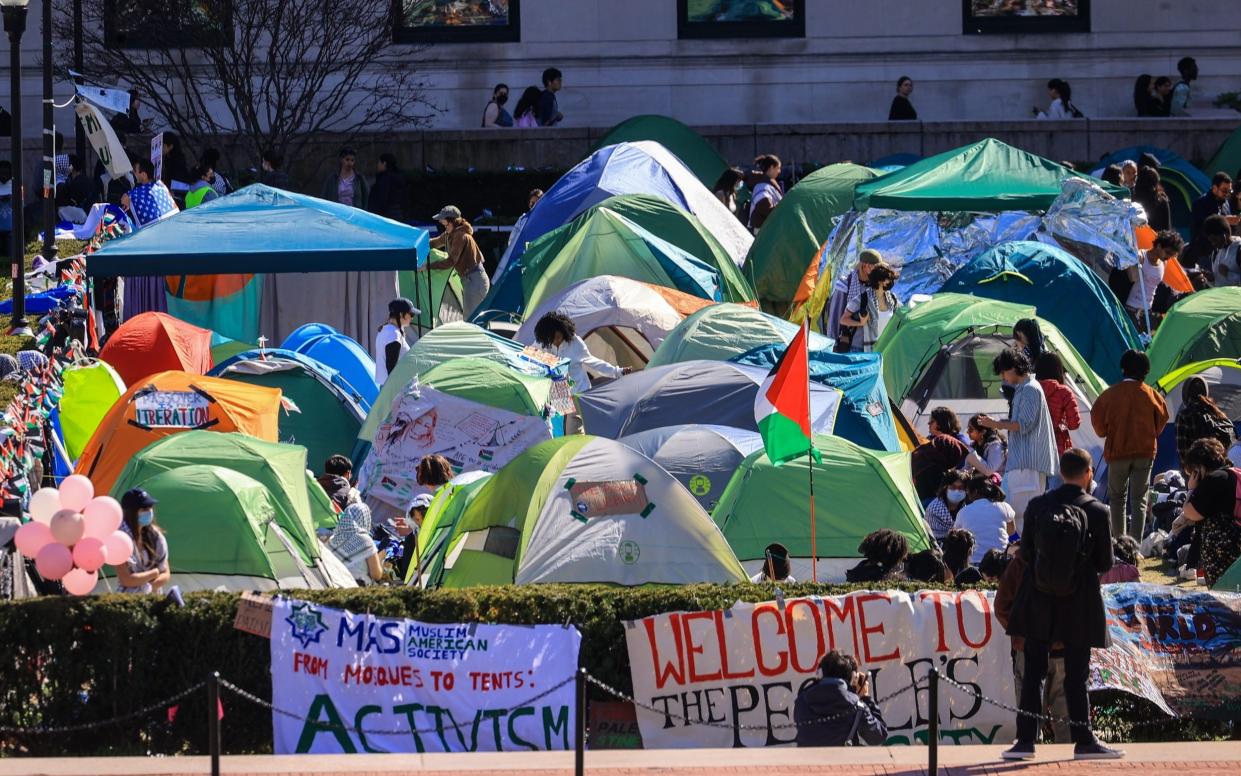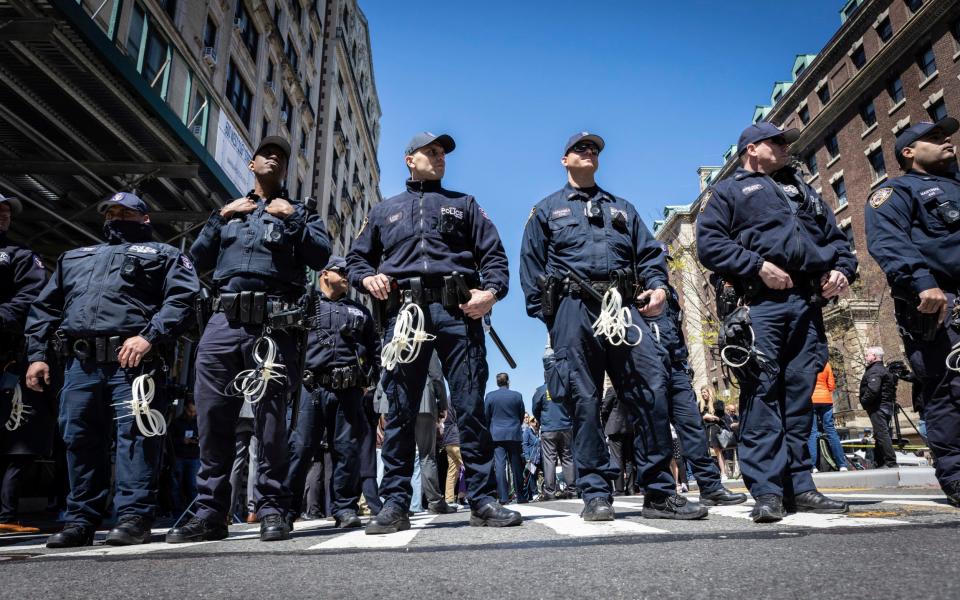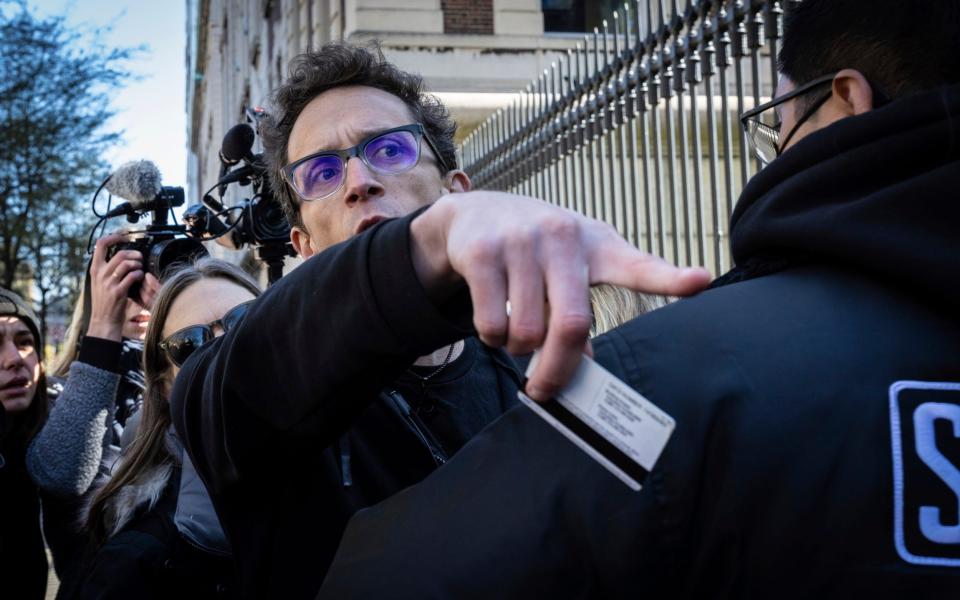Alexandria Ocasio-Cortez hits out at Columbia for calling police on pro-Palestine protesters

Alexandria Ocasio-Cortez has hit out at Columbia University for its decision to call the police on the pro-Palestine protesters taking over the main lawn of the campus.
“Calling in police enforcement on non-violent demonstrations of young students on campus is an escalatory, reckless, and dangerous act,” she wrote in a post on X, formally Twitter.
“It represents a heinous failure of leadership that puts people’s lives at risk. I condemn it in the strongest possible terms,” said the member of Congress following a threat from the university to call in the NYPD on protesters who refused to disperse.
In an email to the Columbia community on Tuesday evening, president Minouche Shafix gave the group, named the Gaza Solidarity Encampment, an ultimatum: dismantle or face being cleared out.
Ms Shafix initially gave the group a deadline of midnight on Tuesday to “reach an agreement” – this has now been extended to 8am on Wednesday (1pm GMT) after the encampment did not move overnight.
Dozens of counter-terrorism and strategic response officers are now stationed outside the gates of Columbia University with zip ties.

On Tuesday, more than two dozen Republican senators penned a letter urging the attorney general to intervene.
“You need to take action to restore order and protect Jewish students on our college campuses,” the senators said.
Republicans Josh Hawley and Tom Cotton said that the National Guard should be called in.
In her email, Ms Shafix said that the university would consider “alternative options” for removing the student protesters who have erected dozens of tents on university grounds, demanding that the university support a ceasefire in Gaza and divest from Israel funds.
“I very much hope these discussions are successful. If they are not, we will have to consider alternative options for cleaning the West Lawn and restoring calm to campus,” she wrote.

In an unprecedented step, nearly a week ago, Ms Shafix enlisted city police in riot gear to arrest more than 100 activists who refused to leave the tent village.
The president’s decision raised tensions on campus with students vowing to remain no matter the consequences.
In her campus-wide email on Tuesday, Ms Shafix stated that one of the main motivations for clearing the lawn was so that graduation, scheduled to take place on the lawn on May 15, could go ahead as normal.
“I am deeply sensitive to the fact that graduating seniors spent their first year attending Columbia remotely. We all very much want these students to celebrate their well-deserved graduation with family and friends,” she stated in the email.
Ms Shafix acknowledged the ongoing conversations between the protesters and University administration in her emails and stated that she fully supports “the importance of free speech, respects the right to demonstrate, and recognises that many of the protesters have gathered peacefully”.
On Monday, a Jewish professor accused staff at the university of being “scared” to stand up to pro-Palestinian protesters after he was denied entry to campus over safety concerns.
Shai Davidai, an assistant business professor, claimed his keycard to enter the main campus was deactivated by university authorities when he tried to hold a “stand up to terrorism” counter-protest on Monday.


